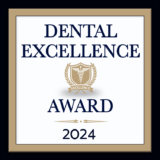
As you probably know by now, every month celebrates a variety of things. April, for instance, is Math Education Month, Zoo and Aquarium Month, and National Poetry Month. It’s also Oral Cancer Awareness Month, which is what we want to discuss with you today on the risk factors for oral cancer.
Most of the time when we talk about general and family dentistry at our office in Shorewood, IL, we are focused on regular dental cleanings and good oral hygiene at home.
Oral cancer prevention involves knowing the risk factors (and what you can do about them) and getting a regular oral cancer screening. If you thought early detection was important in treating gum disease, it’s much more important when it comes to oral cancer.
If you have not yet scheduled your next dental visit at Shorewood Family Dental Care, we encourage you to do so today. As part of your exam, we look for signs and symptoms of oral cancer along with the many other things we do.
Call 815-725-5991 or contact us online to make your appointment soon.
What You Should Watch For
When you come to our office, we will be watching for anything that looks out of the ordinary. We will let you know so you can get tested by your physician if needed. With oral cancer, as with any cancer, it’s better to be safe than sorry.
That’s why we also want you to know that things that you should pay attention to between dental visits.
Any of the following could be symptoms of oral cancer:
- red, white or speckled lumpy spots
- open sores that don’t heal
- bleeding in the mouth
- pain or difficulty swallowing
- difficulty moving your jaw
Now, be aware that these do not necessarily mean you have oral cancer. These can be symptoms of other issues, too. Nevertheless, it never hurts to be sure. If you have any concerns, get tested as soon as possible.
Early detection makes a big difference in the survival rate for people with oral cancer.
When oral cancer treatment starts before it has spread from your mouth, the 5-year survival rate is 83 percent. If cancer has spread to the lymph nodes, the 5-year survival rate drops to 62 percent.
And if cancer has spread to more distant parts of the body, then the survival rate falls to 38 percent after five years.
The Three Biggest Risk Factors for Oral Cancer
As with any cancer, there will always be cases in which the cause is unclear.
With that said, researchers do know factors that increase your risk of developing oral cancer. We will count down the three most common risk factors below.
HPV
HPV, or the human papillomavirus, will infect 80 percent of Americans, according to the Centers For Disease Control.
For 99 people out of 100 people who get HPV, it has little or no effect at all. But for that one person in 100, HPV can develop into cancer, which includes the possibility of oral cancer.
An HPV vaccine has been developed, but it is only effective if it is administered before the virus is contracted. For this reason, health officials recommend that children receive the two-dose vaccine regimen between the ages of 11 and 12.
Teens and young adults who may not have been exposed to HPV may be eligible for a three-dose vaccine regimen. Talk to your physician to learn more.
Alcohol
Alcohol is the second-most common risk factor in oral cancer. More specifically, research has shown that people who have an average of three or more drinks per day are more likely to develop oral cancer.
On the other side, research also suggests that reducing or eliminating alcohol consumption can reduce a person’s risk of oral cancer.
Tobacco
Tobacco use isn’t just the leading cause of oral (and many other) cancers. It is far and away the biggest risk factor. In fact, experts estimate that tobacco use is a factor in 75 to 90 percent of oral cancer cases.
Any kind of tobacco product can lead to cancer — cigarettes, cigars, chew, and dip. And in case you were wondering, initial research shows that vaping can increase your oral cancer risk, too.
Get Screened
We give our patients a FREE oral cancer screening with every exam at Shorewood Family Dental Care. You want to maintain optimal health and we want to help you stay there.
Help us help you. Call 815-725-5991 today or fill out our online form to schedule your next appointment.




